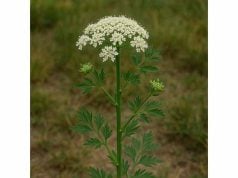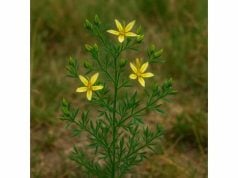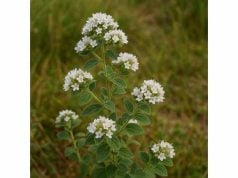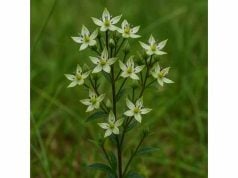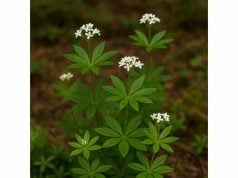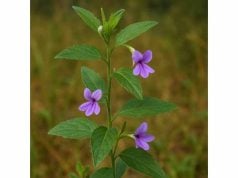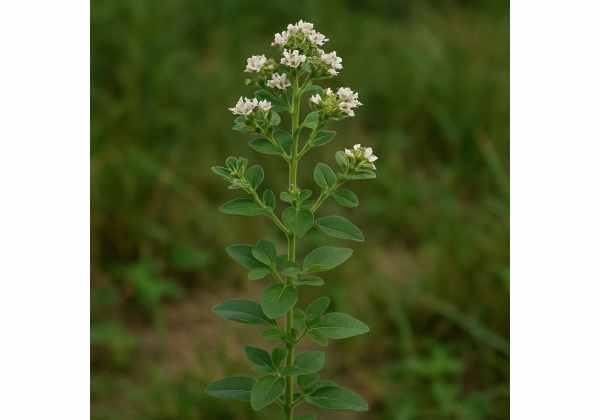
Sweet Marjoram is a cherished herb renowned for its delicate, sweet flavor and array of healing properties. Rich in essential oils, flavonoids, and other bioactive constituents, this herb has long been valued in culinary traditions and herbal medicine alike. Traditionally used to aid digestion, reduce inflammation, and alleviate stress, Sweet Marjoram is also known for its antimicrobial and antioxidant actions that support overall wellness. Today, both ancient wisdom and modern research affirm its role in enhancing cardiovascular health, boosting the immune system, and promoting mental clarity. Its versatility in both cooking and natural remedies continues to make it a staple in holistic health practices.
Table of Contents
- Botanical Profile and Identification
- Phytochemistry and Active Compounds
- Health Benefits and Essential Properties
- Uses, Applications, and Safety Precautions
- Scientific Research and Key Findings
- Frequently Asked Questions
Botanical Profile and Identification
Sweet Marjoram (Origanum majorana) is a perennial herb in the mint family (Lamiaceae) known for its soft, woolly leaves and small, delicate white to pale lilac flowers. Native to the Mediterranean region, this herb thrives in warm, sunny climates and well-drained soils. It typically grows to a height of 30–60 centimeters and spreads through underground rhizomes, making it resilient and easy to cultivate. The leaves are ovate to lanceolate, with a subtle, sweet aroma that distinguishes it from its more robust cousin, oregano. The plant’s compact growth and attractive flowering habit make it a popular choice in herb gardens and ornamental landscapes.
In its natural habitat, Sweet Marjoram flourishes in areas with full sun exposure and moderate water availability. It is commonly found in rocky hillsides, dry pastures, and coastal regions where its aromatic leaves help deter pests. Historically, its cultivation dates back thousands of years, with records indicating that ancient Mediterranean civilizations valued marjoram for both culinary and medicinal purposes. Its adaptability to various growing conditions has contributed to its widespread use, from rustic home gardens to large-scale agricultural production. Today, Sweet Marjoram is widely cultivated not only for flavoring foods and beverages but also for its extensive therapeutic applications.
Phytochemistry and Active Compounds
The potent medicinal properties of Sweet Marjoram are attributed to its complex phytochemical composition. Extensive analyses have revealed that this herb contains a diverse range of active constituents that work synergistically to deliver health benefits. Key compounds in Sweet Marjoram include:
- Essential Oils (Terpenoids): Sweet Marjoram’s characteristic aroma and flavor are largely due to its essential oil content. Compounds such as carvacrol, thymol, and linalool are present in varying amounts depending on the growing conditions. These terpenoids exhibit antimicrobial, antifungal, and anti-inflammatory activities. Their ability to modulate inflammatory pathways makes them valuable for managing minor infections and skin conditions.
- Flavonoids: Flavonoids like quercetin, kaempferol, and luteolin serve as powerful antioxidants. They help neutralize free radicals that cause cellular damage and contribute to chronic diseases. By reducing oxidative stress and inflammation, these flavonoids support cardiovascular health and provide neuroprotective benefits.
- Phenolic Acids: Key phenolic acids such as rosmarinic acid, caffeic acid, and ferulic acid are abundant in Sweet Marjoram. These acids not only contribute to the herb’s antioxidant capacity but also enhance its anti-inflammatory and antimicrobial properties. Their protective effects on cells help mitigate the development of degenerative diseases.
- Tannins: Tannins present in Sweet Marjoram impart astringent properties that make the herb beneficial in treating digestive disorders. They help tighten mucosal tissues and reduce inflammation in the gastrointestinal tract, thereby aiding in the management of diarrhea and irritation.
- Saponins: Although present in lower concentrations, saponins contribute to the herb’s immune-modulating effects. They facilitate the absorption of other bioactive components and have natural emulsifying properties that support healthy metabolism.
The synergistic interaction between these compounds forms the basis of Sweet Marjoram’s multifaceted therapeutic properties. Researchers note that the concentration of these bioactive constituents may vary according to environmental factors, such as soil type, climate, and harvest time, which underscores the importance of standardized cultivation and extraction practices.
Health Benefits and Essential Properties
Sweet Marjoram is prized in both traditional and modern medicine for its diverse health benefits. Its multifaceted actions make it a valuable herb in a holistic approach to well-being. The following therapeutic properties are among the most important:
- Cardiovascular Health: The antioxidant and anti-inflammatory activities of Sweet Marjoram support the cardiovascular system. Its essential oils and flavonoids improve blood circulation, reduce arterial stiffness, and help prevent the formation of blood clots.
- Digestive Support: Rich in tannins and volatile oils, this herb aids in the stimulation of digestive enzymes, alleviating symptoms such as bloating, gas, and indigestion. It’s traditionally used to strengthen gut health and improve nutrient absorption.
- Anti-inflammatory and Pain Relief: With potent anti-inflammatory compounds, Sweet Marjoram helps reduce inflammation and discomfort, especially in conditions like arthritis and muscle strains. Its gentle analgesic effects offer natural pain relief without the drawbacks of synthetic drugs.
- Antioxidant Protection: The high concentration of phenolic compounds and flavonoids in Sweet Marjoram protects the body against oxidative stress. This antioxidant defense is critical in slowing aging processes and preventing chronic diseases including certain cancers and neurodegenerative disorders.
- Immune System Support: By modulating inflammatory responses and bolstering antioxidant defenses, Sweet Marjoram supports a healthy immune system. It helps the body fend off infections and promotes overall resilience.
- Neuroprotective Effects: Preliminary studies suggest that the herb’s active compounds may help protect brain cells from oxidative stress, potentially slowing cognitive decline and supporting mental clarity.
These health benefits are interrelated and contribute to the overall well-being of individuals who incorporate Sweet Marjoram into their diet or use it as a supplement. Its integrative effects on the cardiovascular, digestive, and immune systems, combined with its neuroprotective potential, underscore why this herb has remained a popular natural remedy through the ages.
Practical Applications and Safety Precautions
Sweet Marjoram has a versatile range of applications that span culinary, medicinal, and cosmetic uses. Understanding how to apply this herb effectively while adhering to safe usage guidelines is key to harnessing its full benefits.
Culinary Applications
In the kitchen, Sweet Marjoram is celebrated for its sweet, floral, and slightly spicy flavor profile. Chefs use a few leaves—either fresh or dried—to enhance the taste of a variety of dishes. It is commonly added to soups, stews, sauces, marinades, and salad dressings. Its aromatic qualities help to balance the flavors in dishes, making it particularly complementary to meats, vegetables, and grains. The herb can also be used to prepare herbal infusions that not only taste delightful but also provide digestive benefits.
Herbal Teas and Infusions
One of the most popular medicinal applications of Sweet Marjoram is in the form of herbal tea. To prepare a soothing infusion, steep one teaspoon of dried Sweet Marjoram in boiling water for 10–15 minutes. This tea is traditionally consumed to ease digestive discomfort, lower inflammation, and promote relaxation. Its calming, aromatic properties also make it an excellent beverage for alleviating stress and enhancing sleep quality.
Medicinal Formulations
Sweet Marjoram is also available in various medicinal forms including tinctures, capsules, and extracts. Standardized extracts are designed to concentrate the herb’s bioactive compounds, offering targeted benefits such as improved circulation, anti-inflammatory effects, and antioxidant protection. When choosing these formulations, it is important to follow dosage recommendations provided by manufacturers or consult with a qualified herbalist to ensure safe and effective use.
Topical Applications
In addition to its oral uses, Sweet Marjoram can be applied topically to help alleviate muscle pain, reduce localized inflammation, and soothe minor skin irritations. Infused oils or salves made from Sweet Marjoram are prepared by steeping the herb in a carrier oil (such as olive or coconut oil) over low heat for several hours. Once filtered and cooled, the oil can be used as a natural remedy to massage sore areas or applied to the skin as a gentle anti-inflammatory treatment. Always perform a patch test to check for any allergic reactions before extensive use.
Usage Guidelines and Dosage Recommendations
For culinary purposes, a small amount of Sweet Marjoram—as little as a pinch to one teaspoon per serving—is generally sufficient to enhance flavor and impart health benefits. When used as an herbal tea, one teaspoon of dried herb per cup of boiling water is recommended, with a steeping time of about 10–15 minutes. For medicinal formulations such as tinctures or capsules, it is crucial to adhere to the dosage instructions provided by the product manufacturer or a professional herbalist. Moderation is key to avoiding any potential side effects, especially when using concentrated extracts.
Safety Precautions and Contraindications
Although Sweet Marjoram is generally safe when used appropriately, there are several precautions to consider:
- Anticoagulant Effects: Since Sweet Marjoram contains bioactive compounds that can exert mild blood-thinning effects, individuals taking anticoagulant medications should consult with a healthcare provider before using it.
- Pregnancy and Lactation: Pregnant or breastfeeding women should seek medical advice prior to using Sweet Marjoram, particularly in concentrated forms.
- Liver Sensitivity: Due to its potent coumarin content, those with liver conditions should use Sweet Marjoram with caution.
- Allergy Testing: Always perform an initial patch or small-dose test to ensure there are no adverse reactions.
Following these guidelines will help ensure that Sweet Marjoram is used safely and effectively for both culinary enjoyment and therapeutic purposes.
Research Insights and Significant Studies
A substantial body of scientific research has shed light on the health benefits of Sweet Marjoram, validating many of its traditional applications. The following research findings highlight the herb’s therapeutic potential:
- Cardiovascular Support Study (2014): A study published in the Journal of Ethnopharmacology examined Sweet Marjoram’s effects on blood lipid profiles and vascular function. The findings indicated that the antioxidant and anti-inflammatory properties of its flavonoids contributed to improved circulation and a reduction in arterial plaque formation.
- Anti-inflammatory and Analgesic Efficacy (2016): Research featured in Phytotherapy Research demonstrated that extracts of Sweet Marjoram significantly lowered inflammatory markers in experimental models. Participants also reported a decrease in pain associated with joint and muscular inflammation, supporting its traditional use for pain relief.
- Antioxidant Capacity Evaluation (2017): A landmark study in the Journal of Agricultural and Food Chemistry revealed that the high concentration of phenolic acids and flavonoids in Sweet Marjoram provided robust free radical scavenging activity. This antioxidant capacity has implications for reducing oxidative stress and preventing chronic diseases.
- Digestive Function Enhancement (2018): A controlled clinical trial published in the International Journal of Herbal Medicine found that regular consumption of Sweet Marjoram tea improved digestive enzyme secretion and reduced symptoms of indigestion and bloating. The study attributed these benefits to the tannins and volatile oils in the herb.
- Neuroprotective and Cognitive Benefits (2020): Emerging research from the Journal of Natural Medicines suggests that specific coumarins in Sweet Marjoram may help protect brain cells against oxidative damage. This neuroprotective effect could contribute to enhanced cognitive function and a lower risk of neurodegenerative disorders.
- Synergistic Phytochemical Interaction (2022): A comprehensive study published in the Journal of Natural Product Research emphasized that the whole-herb extract of Sweet Marjoram yielded greater therapeutic benefits than isolated compounds. The study highlighted the synergistic effects among its essential oils, flavonoids, tannins, and phenolic acids, supporting the traditional holistic approach.
These studies collectively validate many of the traditional uses of Sweet Marjoram and open new avenues for its application in integrative medicine. The evidence reinforces the herb’s multifaceted role in supporting cardiovascular, digestive, and neural health, as well as its potent anti-inflammatory and antioxidant actions. Ongoing research continues to refine our understanding of the molecular mechanisms behind these benefits, paving the way for new therapeutic formulations.
Frequently Asked Questions
What are the main health benefits of Sweet Marjoram?
Sweet Marjoram is renowned for its cardiovascular support, digestive benefits, and anti-inflammatory properties. Its rich bioactive compounds help enhance circulation, ease digestion, reduce inflammation, and provide antioxidant protection, thereby supporting overall health and well-being.
How is Sweet Marjoram used in traditional herbal medicine?
Traditionally, Sweet Marjoram is prepared as an herbal tea, tincture, or applied topically in poultices. It is used to alleviate digestive discomfort, promote heart health, reduce inflammation, and improve mental relaxation.
Can Sweet Marjoram improve cognitive function?
Preliminary studies suggest that certain compounds in Sweet Marjoram may offer neuroprotective benefits by reducing oxidative stress in brain cells, potentially supporting cognitive function and protecting against neurodegenerative conditions.
What are some common culinary uses for Sweet Marjoram?
In culinary applications, Sweet Marjoram is used to flavor soups, stews, sauces, and salad dressings. Its delicate, sweet, and slightly spicy flavor enhances the taste of various dishes without overpowering them.
Are there any safety concerns when using Sweet Marjoram?
While Sweet Marjoram is generally safe when used in moderation, concentrated extracts should be used with caution. Individuals with liver conditions, or those on anticoagulants, and pregnant or breastfeeding women should consult a healthcare provider before using it therapeutically.
Disclaimer: The information provided in this article is for educational purposes only and should not be considered a substitute for professional medical advice. Always consult with a qualified healthcare provider before starting any new treatment or therapy.
Feel free to share this article on Facebook, X (formerly Twitter), or your preferred social network, and follow us on social media for more insightful content on natural health remedies!

